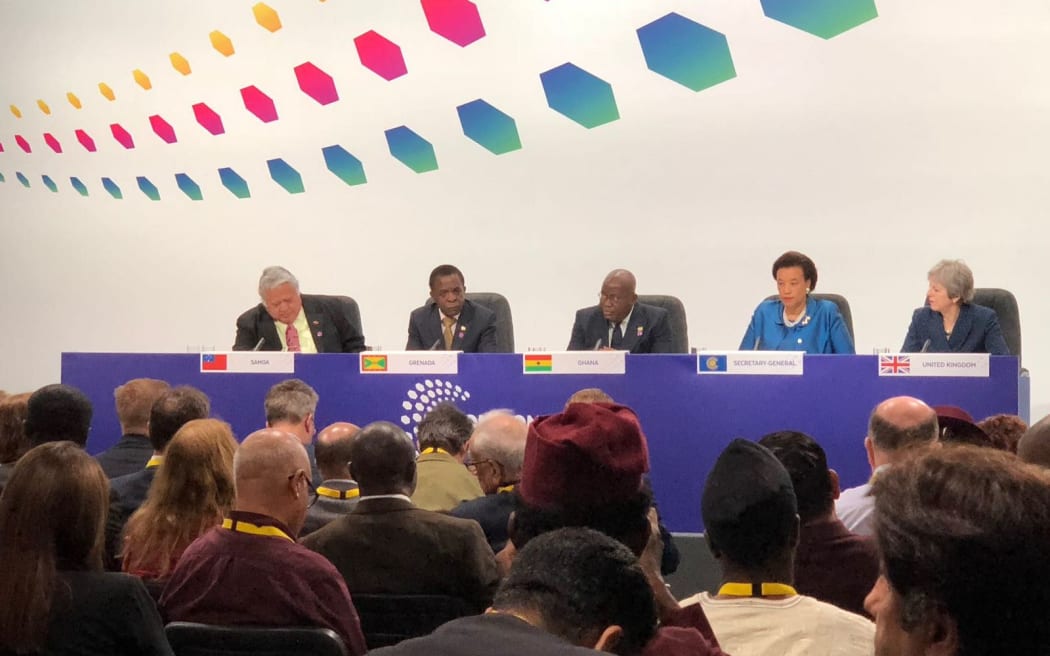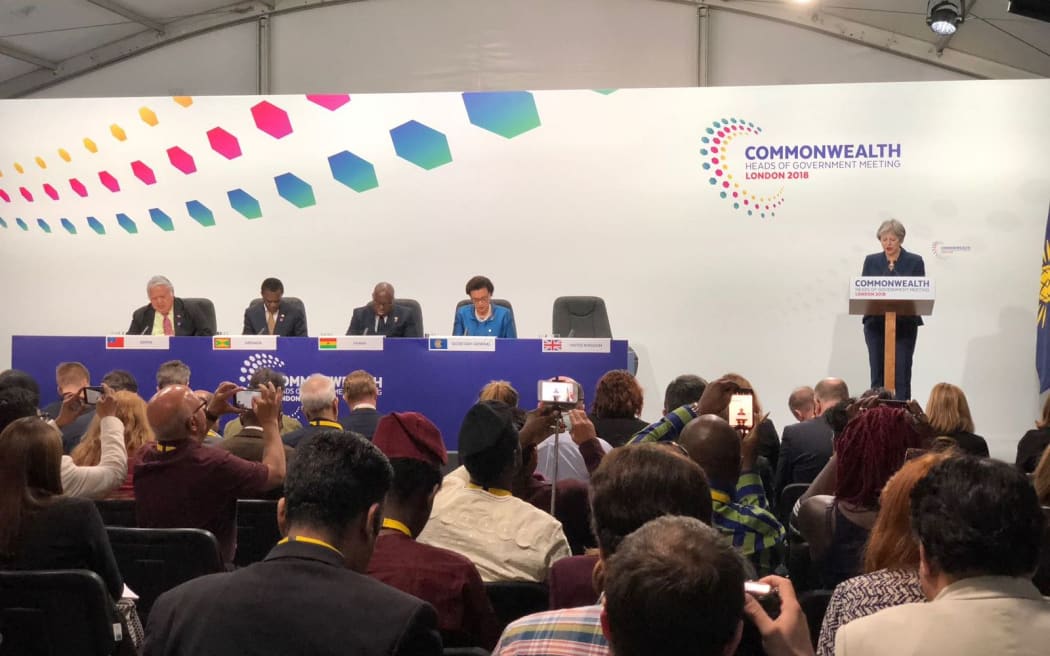
Commonwealth Heads of Government summit. Photo: The Commonwealth Secretariat
The 53 Commonwealth nations have adopted the Blue Charter on Ocean Governance, as the leaders' summit ended in London, Friday 20 April.
The Blue Charter maps out efforts to protect oceans and marine environments throughout the Commonwealth, from threats such as climate change, pollution and over-fishing.
Vanuatu and Fiji have put themselves forward to champion the charter's cause among the Pacific Island nations.
The Secretary-General, Patricia Scotland, said it means the leaders have agreed on a bold, co-ordinated push to protect the world's oceans.
"Their landmark decision to adopt a Commonwealth Blue Charter will affect one-third of the world's national coastal waters, helping to sustain livelihoods and eco-systems globally," she said.
.@PScotlandCSG spoke about key outcomes at the final press conference of #CHOGM2018, including the #Commonwealth #BlueCharter, #Cybercrime Declaration, Connectivity Agenda for #Trade and #Investment and new guidelines for #CommonwealthElections observationhttps://t.co/PlsqAl02lf
— The Commonwealth (@commonwealthsec) April 20, 2018
Samoa said the charter is part of a welcome focus on issues that affect the Commonwealth's most vulnerable members - including the Pacific Island states.

Britain's Prime Minister, Theresa May. Photo: The Commonwealth Secretariat
The British Prime Minister Theresa May said the Commonwealth countries are also working to tackle the scourge of plastic pollution at sea.
Mrs May, who chairs the leaders' group, said Britain and Vanuatu were working together to launch the Commonwealth Clean Oceans Alliance.
She said a series of commitments have already been made by the member states.
"Papua New Guinea has banned plastic bags, Belize will ban plastic bags forks and other single use items by 2019. New Zealand has announced a ban on microbeads which will come into effect in June."
"The Bahamas is planning to ban plastic bags this year and the UK has pledged to ban plastic straws, stirrers and plastic stemmed cotton buds," she said.
Mrs May added that the Bahamas was planning to ban plastic bags this year, and that the UK had pledged to ban plastic straws, stirrers and plastic stemmed cotton buds.
Vanuatu's government has already taken action to end access to plastic bags and placed limits on plastic drink bottles in the country.
Its Foreign Minister, Ralph Regenvanu, said Vanuatu was glad for the support it had have received from many other countries who want to join the Alliance.
"We are going to work closely with the United Kingdom, the other co-champion on the issue, to share knowledge, share experiences and try and build up the move to deal with marine litter across the whole world, particularly starting in the Commonwealth countries, of course," he said.
According to Mr Regenvanu, Vanuatu is about to undertake a study on all the uses of plastic in the country and how the material is disposed of.

